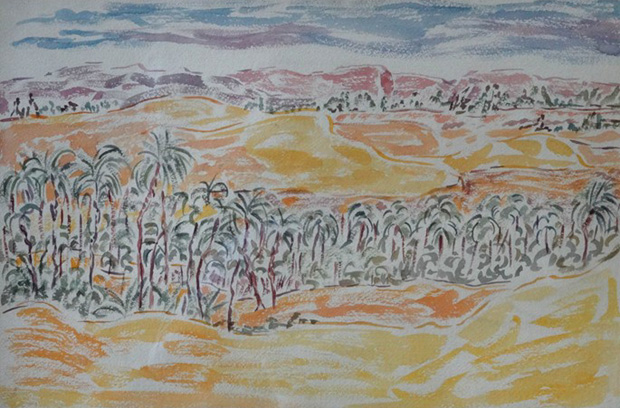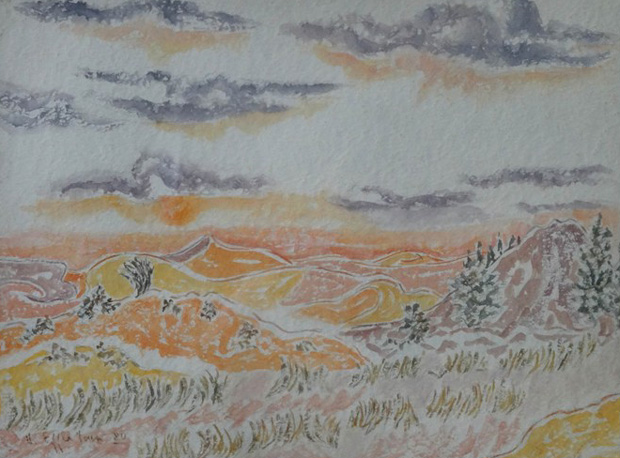The Museum of Modern Art in New York is celebrating the iconic Egyptian artist Inji Efflatoun’s great achievements with the upcoming launch of the English translation of her famous diaries. We sit down with Sherwet Shafei, a longtime friend of the artist, to get her thoughts on Efflatoun's lesser-known work and her recent exhibit at Safarkhan Gallery.
by Farah El-Akkad
Inji Efflatoun’s Kafr Shokr collection showed at Safarkhan Gallery in Zamalek earlier this month, weaving a bucolic tapestry of freedom. Most of the late artist's paintings were being displayed for the first time to the public.
Efflatoun was arrested and secretly imprisoned during Nasser's roundup of communists in 1959, and later released in 1963. The bright artworks at the exhibit conveyed the sense of liberation she felt.
[caption id="attachment_453354" align="alignnone" width="620"] Palm Trees, watercolor, 46x31cm, circa 80’s[/caption]
Palm Trees, watercolor, 46x31cm, circa 80’s[/caption]
"They all resemble a sense of freedom and hope because she painted them right after she got out of prison in Nasser’s era. She finally felt free,” says Sherwet Shafei, the gallery's owner and Efflatoun's longtime friend.
Unlike Efflatoun’s painting during her prison years, which mostly resembled dark, depressing colors and features, her Kafr Shokr collection is colorful and mostly portrays the scenery of trees, fruits and the harvest season which took place at her family’s home and farm in Qalyubia City.
[caption id="attachment_453355" align="alignnone" width="620"] Landscape, watercolor, 30x39cm, 1980[/caption]
Landscape, watercolor, 30x39cm, 1980[/caption]
“Not only did she signify the meaning of freedom through this collection, but she also portrayed the characteristics of people who live in Kafr Shokr,” Shafei says. “Despite being poor, they were happy and satisfied. Their real identity was not yet diminished, unlike people in the city who were very different in character.”
Efflatoun was a Marxist known to have sympathized greatly with workers and concentrated on showing their struggle for their daily bread. Those simple people became the stars of her work. The exhibition at Safarkhan also showed some of Efflatoun’s personal belongings, such as her passport, diary, shawl and photos from her wedding and honeymoon.
Comments
Leave a Comment